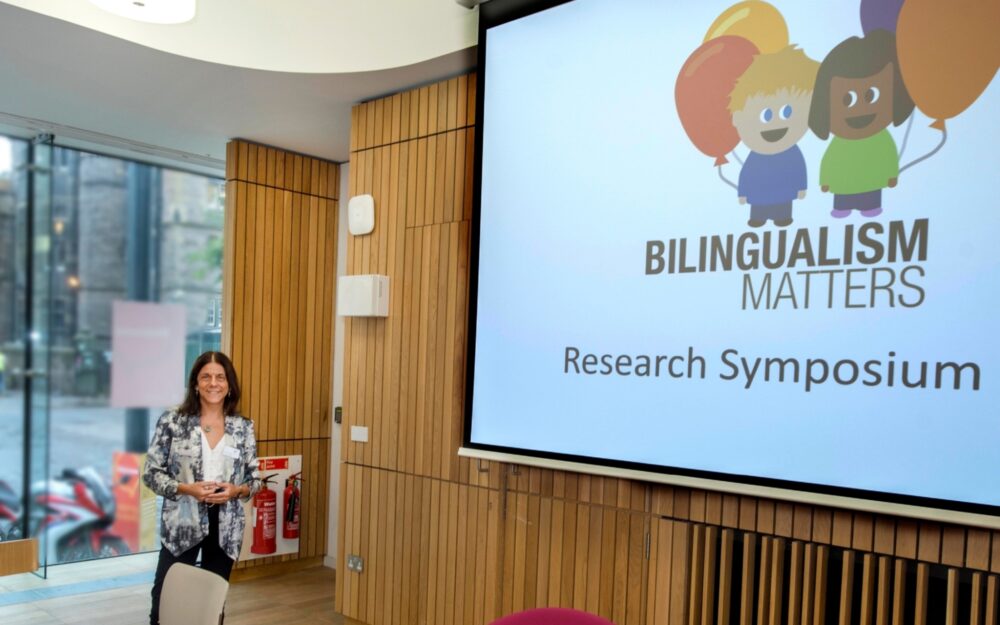
Billions of people around the world are bilingual, yet bilingualism remains largely misunderstood and much of the existing research is inaccessible. A University of Edinburgh spinout is changing this through community, original research, and outreach projects that bring multilingual education into focus.
Research shows that speaking a second language in childhood improves school performance and thinking skills, as well as helping to maintain mental agility in later life. More recent research suggests that language learning in adulthood also has many positive cognitive effects. The benefits of bilingualism are clear, but Antonella Sorace, Professor of Development Linguistics in the School of Philosophy, Psychology and Language Sciences at the University of Edinburgh, identified that there was a significant lack of research and resources that were accessible outside of academia.
In 2008 Professor Sorace established Bilingualism Matters as a local service for parents and teachers in Edinburgh, but it became instantly clear that the level of demand would require a larger resource. With the support of Edinburgh Innovations (EI), who negotiated contracts and helped Professor Sorace to establish key relationships, Bilingualism Matters became a research and information centre that expanded to field requests for information and speaking engagements from high profile institutions such as the UK’s Department of Transport and the American Councils for International Education. EI helped Professor Sorace navigate this unfamiliar terrain, utilising its consultancy expertise to negotiate fees on her behalf and taking care of the contracts.
With the important details handled, Professor Sorace and her growing team were free to focus on the task at hand: providing much needed information and guidance on bilingualism and multilingualism to families, community groups, schools, health workers, policy makers and industry. Word got around about the work that Bilingualism Matters was doing to empower families, communities and professionals to make informed decisions about language learning and in 2011 the first international branch was launched, with others following soon after. In 2016 Katarzyna Przybycien, now CEO, joined Bilingualism Matters as Public Engagement and Outreach Coordinator with an initial remit of coordinating events, however the proliferating international branches swiftly took over her time.

With the support of EI, in 2022 Bilingualism Matters spun out from the University of Edinburgh and launched as a social enterprise. The new structure enables the organisation to best serve its international network of research centres – now 30-strong and counting - and further its collective mission to communicate research findings on bilingualism and language learning to the wider public. Bilingualism Matters is committed to cultivating a new generation of language researchers who see public engagement as an essential part of their work; to educating pre-service and in-service teachers about aspects of bilingualism that are often missing from their training; and, more widely, to enabling people in different sectors of society to make informed decisions on bilingualism and language learning.
The organisation continues to go from strength to strength: as well as coordinating a range of projects aimed at supporting the international bilingual community, Bilingualism Matters now hosts an annual conference, a regular podcast, and plans for new branches are underway. From its humble beginnings as a local information service, Bilingualism Matters has grown to inform, educate and support on matters of multilingualism on a global scale.
Learn more about Building Partnerships
School of Philosophy, Psychology and Language Sciences Professor Antonella Sorace discusses Bilingualism Matters and the help provided by EI

We make it easy to access the University of Edinburgh’s multi-disciplinary expertise by matching your needs to the latest research, new technologies and world-class facilities.